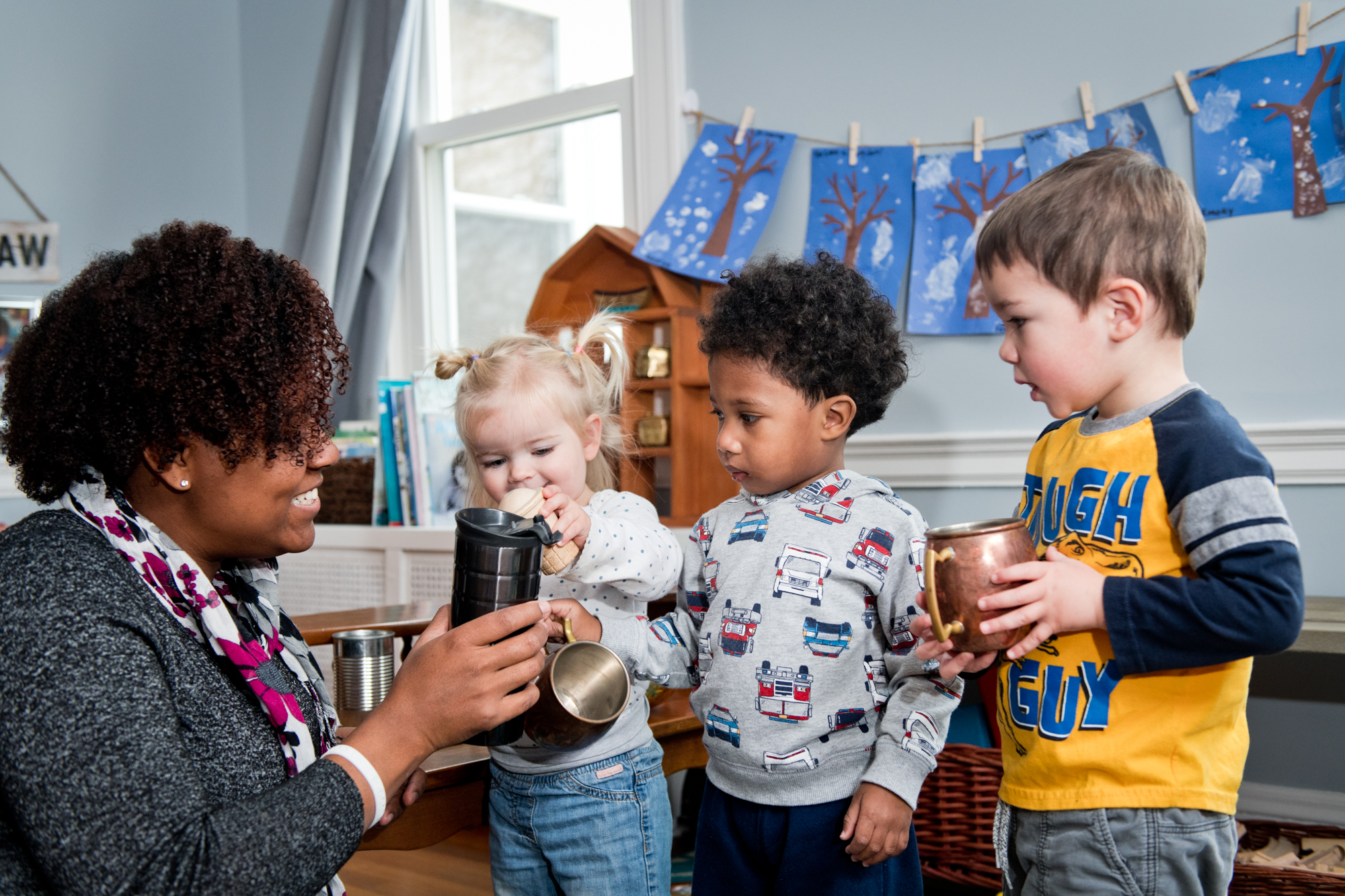
Women’s History Month honors the contributions of all the women and girls who have built, changed, and demanded better from our culture and society. While the movement has made progress since Sojourner Truth called for women’s rights across gender, race, and class—“Ain’t I a woman?”—our country’s journey toward gender equity and justice continues. We urge you to support these nonprofits training leaders for justice, advocating to fix our child care system, and promoting and protecting access to health care for everyone.
LEADING FOR JUSTICE
Our legal and social systems fail to secure the rights of all women, overlooking in particular many women who are immigrants, low-income, or involved in the justice system. These women and their allies are advocating for their rights, legislative protections, and to have their voices heard in their communities and in the courthouses through nonprofit partners like those below.
National Mobilization Against Sweatshops advocates for people working in the factory, service, and home health care industries. Most home health care attendants are immigrant women of color. The group is leading a campaign to end these workers’ 24-hour shifts, which harm their mental and physical health and their ability to provide quality care to patients.
Women’s Community Justice Association aims to close the Rose M. Singer Center, the women’s jail on Rikers Island, notorious for a pervasively abusive and violent culture. It raises awareness about the plight of women in the city’s jail system, documents the experiences of formerly incarcerated women through oral history projects, and advocates for and provides services to women currently detained on Rikers.
LONG ISLAND: New Hour serves justice-involved women and their children. It provides re-entry and family reunification services, special events to support peer connections, help managing benefits and meeting basic needs, parenting and financial skills training, and advocacy and leadership programs.
IMPROVING NEW YORK’S CHILD CARE SYSTEM
For parents, and particularly mothers, access to child care often determines to what extent they participate in the labor force. Caregiving demands on women contribute significantly to the gender wage gap. Moreover, child care is a major driver of the region’s growing affordability crisis. Because the child care system is underfunded yet requires a high level of staffing and labor, child care assistance programs are unaffordable for a majority of families even while staff are chronically underpaid. These groups are working to fix what many regard as a broken business model and advocating on behalf of parents and child care providers for an equitable system that works for all.
Day Care Council of New York is the umbrella organization for more than 200 child care centers and home-based child care providers citywide. It has researched issues like salary parity in the child care workforce, advocated on behalf of its members for city support, provided financial assistance to child care workers seeking advanced degrees, and it provides direct support to over 2,000 families seeking assistance and affordable child care every month.
New Yorkers United for Child Care was founded by a diverse cross-section of advocates, policymakers, and educators to advocate for universal child care in New York City. It is the only child care advocacy group that dedicates itself to recruiting and building the political power of parents across the five boroughs. It raises awareness about the rising costs of child care and about the value for children and parents, especially for mothers, of universal, government-funded early child care.
WESTCHESTER: All Our Kin trains, supports, and sustains small, home-based family child care centers, the majority of which are operated by women. It offers the resources and coaching necessary to create high-quality programs. The providers that All Our Kin serves are often the primary source of care for the region’s youngest and low-income children of color.
ENSURING ACCESS TO HEALTH CARE
Our health and reproductive health systems should provide care to everyone, and ensure that people are educated about their options, safety, and bodily autonomy. While access to reproductive health care and sexual health education disproportionately affects women, everyone benefits from comprehensive, inclusive health systems. From culturally responsive support to increasing access to reproductive healthcare and education, these nonprofits are improving all people’s ability to take charge of their health and access the care they need.
New York Birth Control Access Project closes gaps in access to contraception, particularly for young women, low-income women, and women of color. It trains young women to be reproductive justice advocates and works with healthcare providers, researchers, hospitals, and women’s advocacy groups to increase access to birth control services. It successfully pressed for a bill that authorizes pharmacists to prescribe birth control. In May 2023, Governor Hochul signed the bill into law.
National Institute for Reproductive Health increases access to reproductive health care and eliminates racial and economic disparities in reproductive health. It has played an integral part in campaigns to safeguard abortion access, reduce the maternal mortality rate in New York State, and to provide sexual health education in schools.
LONG ISLAND: Latina Sisters Support increases breast cancer awareness among Hispanic and Latina women and their families, reduces racial and socioeconomic disparities in access to quality health care, and provides care such as hot meals, counseling, transportation, and cleaning to women with a cancer diagnosis and their families.